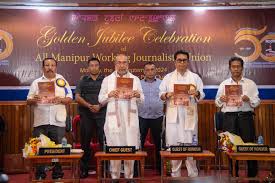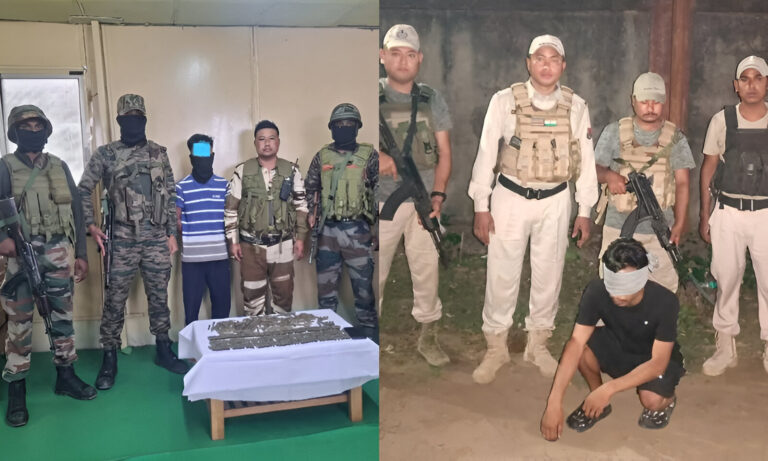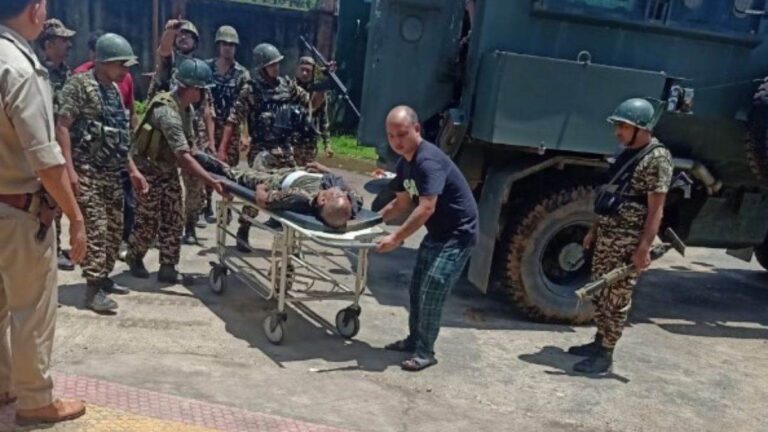Acting Sincerely: The Call for New Education Policy Implementation in Manipur
Summary
Manipur Governor Lakshman Prasad Acharya recently urged university leaders in the state to diligently implement the New Education Policy (NEP) 2020. In a meeting at Raj Bhavan, he emphasized the need for educational institutions to adopt a more experimental and holistic approach, assuring support to address challenges faced during the implementation.
Introduction: The Need for Educational Reform in Manipur
Education is the cornerstone of any society, shaping future generations and influencing overall development. In Manipur, the implementation of the New Education Policy (NEP) 2020 has been a topic of great importance and urgency. Governor Lakshman Prasad Acharya’s recent call for sincere efforts from university leaders signals a pivotal moment in the state’s educational landscape. But what does this mean for the future of education in Manipur, and how can these initiatives truly transform the educational experience?
Understanding the New Education Policy (NEP) 2020
The NEP 2020 is a transformative framework designed to overhaul the Indian education system. Its key features include:
- Holistic Education: Emphasizing a well-rounded curriculum that nurtures both academic and life skills.
- Flexibility in Learning: Allowing students to choose subjects based on their interests rather than rigid pathways.
- Integration of Technology: Leveraging digital tools to enhance learning experiences.
- Inquiry-Based Learning: Encouraging students to engage actively with material through research and exploration.
With these objectives, NEP 2020 aims to foster an environment where learning is enjoyable and meaningful. But how do we ensure these principles are effectively integrated into the educational fabric of Manipur?
The Role of University Leaders in Implementation
During the meeting with Vice-Chancellors and Registrars, Governor Acharya laid out the expectations for university leadership. He called on these officials to act as catalysts for change. What does this mean in practical terms?
- Leadership in Curriculum Development: University leaders must work collaboratively to revise curricula that align with NEP’s vision. This means engaging with educators, industry experts, and students to ensure the curriculum is relevant and comprehensive.
- Professional Development for Educators: Training and workshops should be organized to equip educators with the necessary skills to implement new teaching methodologies. It’s not just about what students learn but how they learn.
- Infrastructure Development: Governor Acharya highlighted the need for adequate teaching and non-teaching staff. This is essential for creating an environment conducive to learning, where students can thrive.
- Community Engagement: Universities should extend their influence beyond campus borders, engaging with local communities to foster educational initiatives that reflect the needs and aspirations of the people.
Current State of Education in Manipur
Education in Manipur has faced numerous challenges over the years, from infrastructural deficits to sociopolitical issues. The state’s unique cultural dynamics and ethnic diversity also play a role in shaping educational policies. With NEP 2020, there is an opportunity to address these challenges head-on.
Infrastructure and Facilities
The state government has initiated several missions aimed at improving college infrastructure. The “College Fagathansi Mission” is a notable example, with plans to invest significantly in developing educational facilities. This is a crucial step towards ensuring that students have access to quality education in a supportive environment.
Quality of Teaching Staff
The effectiveness of any educational system hinges on the quality of its teachers. The governor’s focus on staffing reflects a broader understanding that without skilled educators, even the best policies can falter. Training programs, mentorship, and competitive salaries will be essential to attract and retain quality teaching professionals.
Challenges to Implementation
While the intentions behind NEP 2020 are commendable, the road to successful implementation is fraught with challenges:
- Resistance to Change: Change is often met with skepticism. Some educators and institutions may be resistant to adopting new methods and curricula. Engaging stakeholders early in the process can help mitigate resistance.
- Resource Allocation: Adequate funding is vital. Ensuring that financial resources are allocated appropriately to support new initiatives can be a significant hurdle.
- Societal Norms: Cultural attitudes toward education, particularly regarding gender and ethnic disparities, can affect implementation. Addressing these social issues will be crucial for equitable educational reforms.
Conclusion: A Call to Action
The implementation of the New Education Policy in Manipur presents an exciting opportunity for educational reform. Governor Acharya’s call for sincerity and commitment from university leaders is a clarion call to action. As we navigate this new educational landscape, collaboration among all stakeholders—government, educators, students, and the community—will be vital.
FAQs
- What is the New Education Policy (NEP) 2020?
- The NEP 2020 is a comprehensive framework aimed at transforming the Indian education system to make it more holistic and student-centric.
- Why is the implementation of NEP crucial for Manipur?
- Implementation is crucial for improving educational quality, accessibility, and relevance in response to the state’s unique challenges.
- What role do university leaders play in this implementation?
- University leaders are expected to guide the curriculum development, ensure quality teaching, and engage with communities for better educational outcomes.
- What challenges does Manipur face in education?
- Manipur faces challenges such as inadequate infrastructure, staffing issues, resistance to change, and societal norms affecting education.
- How is the government supporting educational reforms?
- The government is investing in initiatives like the College Fagathansi Mission to improve college infrastructure and facilities.



